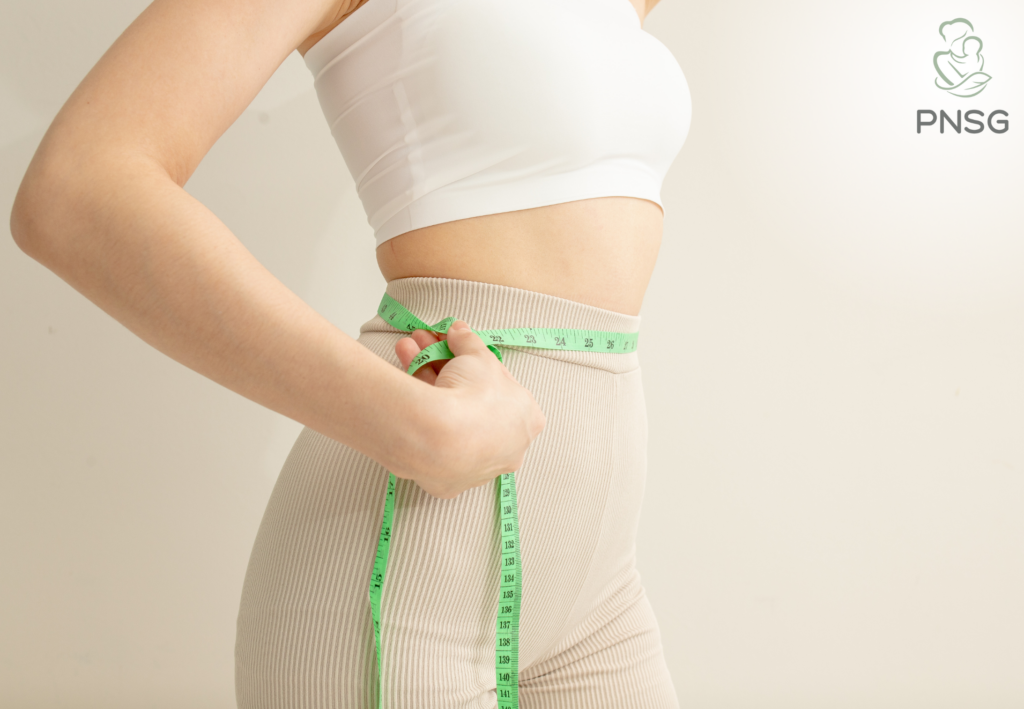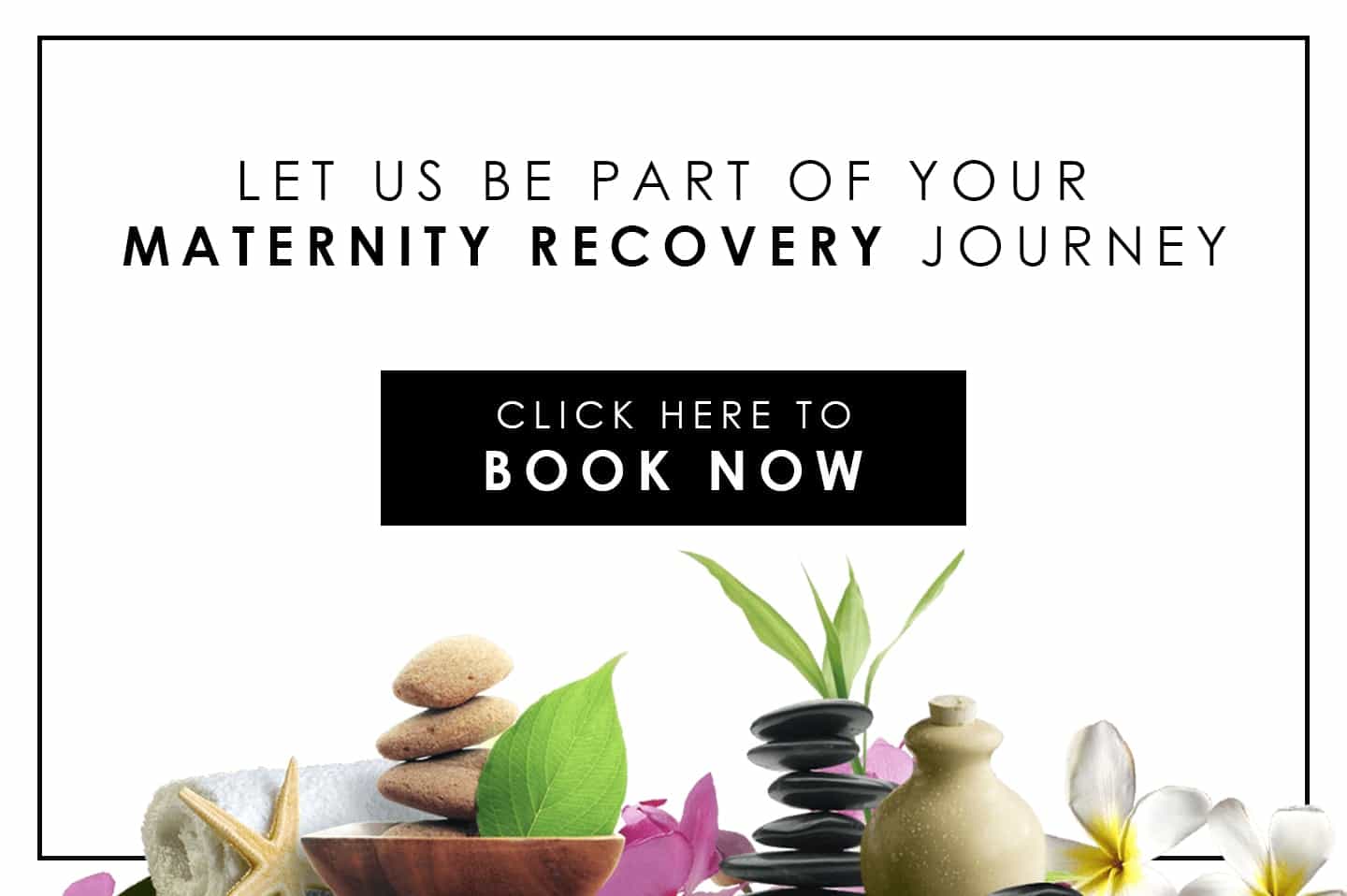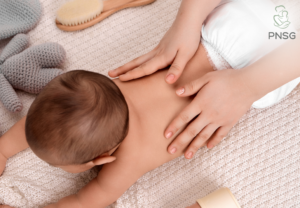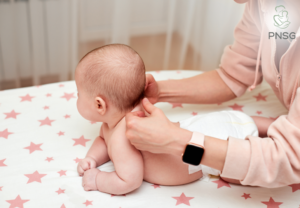7 Gambas Crescent, #09-09, Ark@Gambas, Singapore 757087 ♦ Reservation : +65 6417 9690
Postpartum Weight Loss: 8 Things You Need To Know

Welcoming a new baby into the world is an incredibly beautiful and life-changing experience that marks the beginning of a new chapter in life. However, along with the joys and wonders of motherhood, this period also brings significant changes to your body. After childbirth, one of the most common concerns that many new mothers face is losing the weight they gain during pregnancy.
This journey back to your pre-pregnancy body can be filled with a mix of emotions, from eagerness to anxiety, and it’s essential to navigate this path with patience and understanding. The process of postpartum weight loss is about nurturing your body, understanding its new limits and strengths, and taking care of your overall well-being.
As you embark on this journey, here are eight key things you need to know about postpartum weight loss.
1. Give Your Body Time to Heal
The first thing to remember is that your body needs time to recover from childbirth. The immediate postpartum period is not the time to jump into a rigorous weight loss regimen. Your body has undergone significant changes and stress during pregnancy and delivery. Allow yourself at least six weeks (or until your doctor gives the green light) before starting any weight loss plan. You may also experience postpartum bleeding, hormonal fluctuations, and changes in your pelvic floor. It’s important to allow your body to rest during this time and avoid rushing into weight loss routines. Patience here is not just a virtue; it’s a necessity.
2. Get A Postnatal Slimming Massage Singapore
For many new parents, postpartum body massage can be an incredibly beneficial addition to their recovery routine. A postnatal massage, such as the PNSG postnatal slimming massage, helps speed up womb recovery. This massage is specifically designed to address postpartum body aches, aid in weight loss, and help restore the body to its pre-pregnancy state. This massage technique addresses physical well-being and promotes mental relaxation and stress reduction, which is crucial for new mothers adjusting to the demands of parenthood.
3. Breastfeeding and Weight Loss
Breastfeeding is often thought of as a means to speed up postpartum weight loss, but it’s important to approach this with a balanced perspective. While breastfeeding can burn additional calories, it also increases nutritional needs. Consuming a well-balanced diet is essential to maintain energy and milk production. Remember, the primary goal of breastfeeding is to nourish your baby, not to lose weight.
4. Nutrition is Crucial
Nutrition plays a pivotal role in your postpartum recovery and weight loss journey. Your body needs a variety of nutrients to heal and regain strength. Focus on a diet rich in fruits, vegetables, whole grains, lean proteins, and healthy fats. Eating regular, balanced meals is also important to maintain energy levels. Quick-fix diets or extreme calorie restriction can be harmful, especially if you are breastfeeding.
5. Stay Hydrated
Hydration is another crucial aspect. Drinking plenty of water supports metabolism and overall health. It’s especially important if you are breastfeeding, as hydration impacts milk production.
6. Incorporate Physical Activity Gradually
Exercise is beneficial for postpartum recovery, but it’s crucial to reintroduce it gently. Start with light activities like walking or pelvic floor exercises. As you regain strength, you can gradually include more strenuous exercises. Always listen to your body and avoid pushing it beyond its limits. It’s also important to seek medical advice before starting any exercise regime, especially if you had a C-section or complicated delivery.
7. Sleep is Important
Never underestimate the power of sleep, especially as a new mom. Adequate sleep is essential for weight loss and overall well-being. However, with a newborn, getting enough sleep can be challenging. Lack of sleep can disrupt your metabolism and hormonal balance, making it harder to lose weight. Try to sleep when your baby sleeps, and don’t hesitate to ask for help from family and friends to catch up on rest.
8. Mental Health and Support
Finally, mental health is a critical aspect of your postpartum journey. Hormonal changes, coupled with the stress and responsibilities of caring for a newborn, can lead to feelings of anxiety and depression. These emotional states can affect your eating habits and motivation to exercise. It’s important to seek support when needed, whether it’s from healthcare providers, family, or support groups.
Conclusion
Every woman’s body is unique, and so is her journey back to her pre-pregnancy weight. It’s important to set realistic and healthy weight loss goals. Remember, it took nine months to gain the pregnancy weight, and it may take just as long, or longer, to lose it. A gradual weight loss of 1-2 pounds per week is generally considered safe and more sustainable. Avoid comparing your progress to others. The ultimate goal is not just to lose weight but to be healthy and strong for yourself and your baby. You can also consider hiring certified therapists for postnatal slimming massages in Singapore to ensure you achieve a healthy weight and recovery for your postpartum body. Do ensure to always consult with your healthcare professionals before starting any new diet or exercise regimen, and most importantly, enjoy this special time with your new baby.









